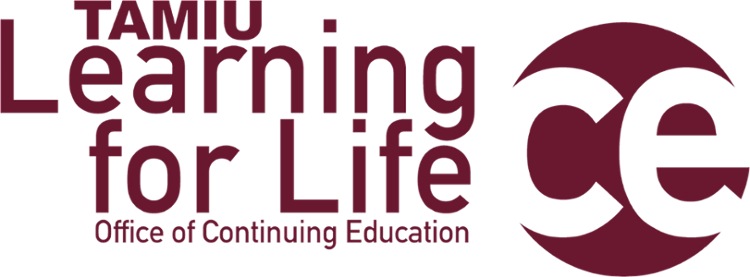Online Lean Six Sigma Green Belt and Black Training Course
Earn Your Lean Six Sigma Green and Black Belts
Lean Six Sigma is a leading methodology for process improvement, efficiency and excellence. Holding Lean Six Sigma Green and Black Belts demonstrates your expertise in minimizing waste and providing premium quality, defect-free products and services. This 100% online course provides the concepts, methodology, and preparation to qualify for the Lean Six Sigma Green and Black Belt certification exam.
6σ
As organizations of all sizes emphasize productivity gains as strategic advantages, more and more are adopting methodologies such as Lean Six Sigma to govern their operations. The Green Belt identifies an employee or prospect as an accomplished, dedicated professional. Moreover, the Black Belt identifies a candidate or prospect has the deepest level of expertise in lean methodology for process improvement.
According to PayScale.com, professionals with Lean Six Sigma credentials earn $84,000 per year on average.
The US Bureau of Labor Statistics (BLS) expects job growth across the Management Analyst category to grow by 14% over the coming decade. This is almost triple the growth rate expected for all jobs.
WHAT IS LEAN SIX SIGMA?
"Six Sigma" describes a series of process improvement techniques designed to reduce errors and improve quality in an organization's products and services. "Lean" is a management discipline that seeks to reduce waste and minimize associated costs. "Lean Six Sigma" represents the blending of the two philosophies into an operating system that maximizes quality while minimizing costs.
WHAT DOES A "GREEN BELT" IN LEAN SIX SIGMA INDICATE?
A Lean Six Sigma Green Belt improves productivity by focusing on the tools, methodologies and principles of Lean Six Sigma. Lean Six Sigma Green Belts are expected to design, implement and manage productivity improvement projects and campaigns.
WHAT JOB TITLES ARE ASSOCIATED WITH THE LEAN SIX SIGMA GREEN BELT?
Lean Six Sigma Green Belts may serve in one or more of the following capacities: Process Engineer, Manufacturing Engineer, Continuous Improvement Specialist and many more. Lean Six Sigma Green Belts often become Six Sigma Consultants, as well.
WHAT DO LEAN SIX SIGMA GREEN BELTS DO?
The Green Belt in Lean Six Sigma is considered a hands-on credential. Green Belts commonly review processes, develop and deploy improvements using the Lean Six Sigma methodology and then manage the improved processes.
WHAT DOES A "BLACK BELT" IN LEAN SIX SIGMA INDICATE?
Black Belts are a change agent in the organization. A Black Belt will be the project owner of an organizational quality improvement process. As project owner, they allocate team member responsibilities and resources, effectively overseeing a team of Green and Yellow Belts.
WHAT DO LEAN SIX SIGMA BLACK BELTS DO?
A Six Sigma Black Belt professional is an expert in these Six Sigma principles:
- DMAIC
- Design of experiments
- Analysis of variance
- Hypothesis testing
- Probability distribution
Black Belts use support tools such as Voice of the Customer (VOC), Lean, failure mode and effects analysis, and statistics. As a Six Sigma Black Belt, you will be responsible for initiating projects and directing the efforts of company quality improvement teams.
WHAT JOB TITLES ARE ASSOCIATED WITH THE LEAN SIX SIGMA BLACK BELT?
Lean Six Sigma Black Belts may serve in one or more of the following capacities: Lean Six Sigma Leader, Project Management & Agile Manager, Quality Assurance Manager, Director of Lean/Six Sigma, or simply Lean Six Sigma Black Belt.
Understand Lean Six Sigma, its origins and its benefits.
Learn the Lean Six Sigma roles and principles and the 8 Wastes of Lean Management.
Master the Lean Six Sigma Improvement method known as DMAIC (Define, Measure, Analyze, Improve and Control)
Learn to collect data and track the success of projects
Complete two real-world Lean Six Sigma projects
Prepare to take and pass the Lean Six Sigma Green and Black Belt certification exams
There are no specific prerequisites for taking this course.
Lean Six Sigma Green Belt
INTRODUCTION TO GREEN BELT TRAINING
Overview of Lean Six Sigma, the 8 Wastes and DMAIC
DEFINE PHASE – HOW TO DEFINE THE PROBLEM
Creating the project charter, understanding the current state and develop project communication
MEASURE PHASE – HOW TO MEASURE THE CURRENT PROCESS
Select measures, planning and collecting baseline data
ANALYZE PHASE – HOW TO IDENTIFY THE CAUSE OF THE PROBLEM
Conducting data and process analysis; brainstorming, developing and validating root causes
IMPROVE PHASE – HOW TO IMPLEMENT AND VERIFY THE SOLUTION
Crafting, filtering and determining solutions; conducting risk management
CONTROL PHASE – HOW TO MAINTAIN THE SOLUTION
Creating monitoring and response plans, project documentation
Lean Six Sigma Black Belt
INTRODUCTION TO BLACK BELT TRAINING
Overview of Black Belt training, project selection, and building leadership skills
DEFINE PHASE
Conducting process walks, strengthening leadership skills, and defining your Black Belt project
MEASURE PHASE
Laying statistical groundwork, testing your measurement system, and sampling the data
ANALYZE
Laying hypothesis testing groundwork; testing correlation, discrete data, continuous normal and non-normal data
IMPROVE
Designing experiments and strengthening leadership skills
CONTROL
Select control charts and creating visual management
Bill Eureka
Bill Eureka has over 40 years of experience in continuous improvement in manufacturing, engineering, and management. He is an experienced trainer, mentor, and coach with the ability to relate to all levels within an organization. He has led and coached hundreds of improvement projects. Bill brings expertise in multiple improvement methodologies and readily combines them to fit the situation as needed. Bill is a Professor in the School of Business at Davenport University.
This course is 100% online. Start anytime.

Office of Continuing Education
5201 University Boulevard
Student Center 118
Laredo, TX 78041
Tel. 956.326.3068 — Fax 956.326.2838
E-mail: ce@tamiu.edu
Office Hours: Mon. - Fri., 8 a.m. - 5 p.m.